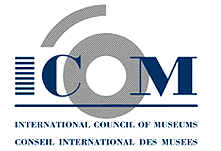by Alissandra Cummins, Barbados Museum and Historical Society
This paper is also available in PDF format
Response Paper presented at Achieving Excellence: Museum Leadership in the 21st Century
INTERCOM/CMA conference held in Ottawa, Canada, September 6-9, 2000.
BACKGROUND:
J.A. Froude wrote about the British West Indies in 1888 saying that " in the Caribbean there has
been romance , but it has been the romance of pirates and outlaws".[T]here are no people here
in the true sense of the word.". (1) Froude's perspective as a British historian was not unusual,
in that his obvious superiority enabled him to comment superciliously on the lack of a
recognisable heritage, while at the same time his ethnocentrism would not permit the
acknowledgment of either indigenous Amerindian or recently enfranchised African as
‘real people' , capable of engendering a real history to any place.
The process of emerging as a true people then, involves both the valorization of
existence/experience and its authentic representation in the annals of history , in
the exhibition halls of the museum. The shadow of Froude and colonial history in general,
makes it imperative that when addressing notions of Caribbean identity , that we first or
simultaneously address those specific historical conditions which legitimized notions of a
cultural vacuum. Various manifestations of exile and many consequences of this sense of
cultural inadequacy still haunt Caribbean cultural phenomena . In the words of the legendary
Bob Marley there is still a need to "emancipate yourself from mental slavery",(2) a need which
both audience and academic alike, are increasingly expectant that Caribbean museums can and
must address...
Paper continued in PDF document below.


